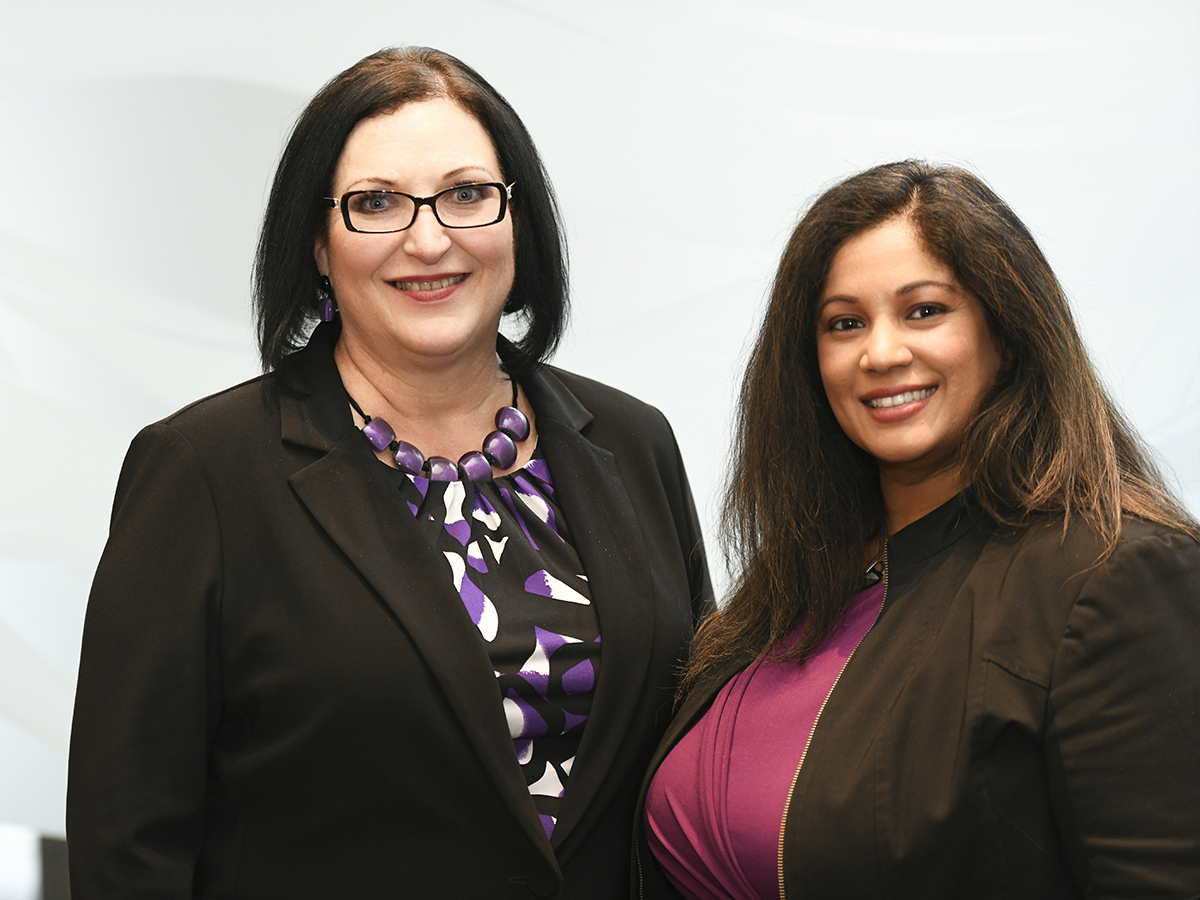

While women are increasingly becoming primary income earners, few women manage their own finances as they near retirement, said Elisha Ribeiro, national sales director for integrated and group retirement services at the Canada Life Assurance Co. (pictured right), during a session at Benefits Canada’s 2024 Defined Contribution Plan Summit in February.
“In our 20s, there is a confidence gap. We’re kind of learning about ourselves and learning who we are in the world. In the 30s that gap decreases between men and women [and] in our 40s, men and women [are equal] in terms of their financial confidence. In our 60s we see it shift, where women have grown into their own and become more confident with themselves. However, this does not translate to the financial aspects of a woman’s life — under age 45, 75 per cent of women manage their own finances, but if we look at women 55 and over, only 50 per cent of women manage their own finances.”
Read: How employers can help shrink Canada’s gender pension gap
Amid this lack of financial confidence, she noted there are three pivotal times in a woman’s life that require financial management: when women become ‘sandwiched,’ simultaneously caring for young children and ageing parents; when they become divorced; and when they become widowed.
Also speaking during the session, Christine van Staden, regional vice-president of group customer and national accounts at Canada Life (pictured left), said sandwiched women are more than twice as likely as men to step away from full-time work to care for parents and children, stepping away from their careers for 12 years, on average.
“Imagine 12 years of stepping back, not having the same level of income [and] therefore not being able to save or even likely think as much about saving for retirement when they’ve been out of the [job] market for that amount of time.”
Read: Financial education offerings may help close pension gender gap
Ribeiro noted for divorced women, their standard of living drops, on average, by 27 per cent, while men’s standard of living increases by 10 per cent. Among widowed women, she cited research that found the financial impact of losing a partner lasts roughly two years longer than grief.
DC plan sponsors can support women’s financial confidence by providing financial advice as well as access to financial planners, said van Staden.
“[Three-quarters] of women don’t have a financial plan. [Two-thirds] don’t have a financial advisor . . . mostly because they don’t know where, or don’t take the time to find them, or are scared to try to find free digital planning tools. When you’re planning your marketing communication strategies, work with your provider and include maybe a quarterly session where your [plan members] bring their young daughters in and the session is geared towards educating these young girls.”
Read more coverage of the 2024 DC Plan Summit.
